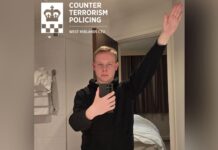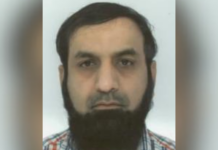An alliance of Muslim organisations has failed in a legal challenge against a controversial anti-terrorism power which allows police to question people for up to nine hours on whether they have been involved in acts of terrorism.
The challenge to the Schedule 7 powers, which allow police to hold people at UK ports and is disproportionately used against Muslims and ethnic minorities, was jointly brought to the Supreme Court last November by the Islamic Human Rights Commission, the Muslim Council of Britain, and CAGE, which campaigns on behalf of the victims of the so-called “war on terror”.
Under the power, police need have no reasonable suspicion to stop, interrogate or detain anybody under the power making it prone to abuse.
The challenge was brought before the Supreme Court in support of Sylvie Beghal, a French national, who was stopped after arriving with her children at East Midlands Airport on a flight from Paris in January 2011.
Her husband Djamel Beghal was jailed in France for terrorism offences in 2005. He claims he was tortured and that his conviction is unfair.
The mother of three refused to answer the questions put to her – which included requests for information about the French-Algerian community in the UK – without the presence of a lawyer and was subsequently convicted for wilfully failing to comply with her duty under Schedule 7 to answer questions.
She unsuccessfully brought a challenge against her conviction before the High Court last year, claiming that the detention had violated her rights under the European Convention on Human Rights.
Subscribe to our newsletter and stay updated on the latest news and updates from around the Muslim world!

The question in this case was whether it was lawful for parliament to create the Schedule 7 powers or whether they are invalid because they infringe the fundamental human rights of people who may be stopped, namely the right to liberty by amounting to unlawful detention, the right to respect for family and private life and the privilege against self incrimination.
Four of the five judges hearing the challenge answered in the affirmative but there was a dissenting judgment from Lord Kerr who insisted that Schedule 7 was too wide and arbitrary in scope.
They concluded the police action was “proportionate” and necessary for the investigation of terrorism.
Mrs Beghal, who is French, had been detained for no longer than was necessary, they added.
They ruled that Schedule 7 of the Terrorism Act 2000 did not breach human rights, but they had suggested there might be “room for improvement” to anti-terror legislation which gave police the power to “stop, question and detain” those entering or leaving the country.
IHRC chair Massoud Shadjareh said: “The dismissal of this appeal demonstrates a very definite shift in the political discourse within the UK. The most senior members of this country’s judiciary have determined that despite being discriminatory, and its ancillary uses (such as the recruitment of individuals for intelligence fishing exercises) falling outside of the scope of the legislation, Schedule 7 is indeed lawful.
“The highest court in the land has succumbed to the unstoppable momentum of the politics of fear, and thus failed to uphold the so-called ‘fundamental British value’ of the rule of law.”






















